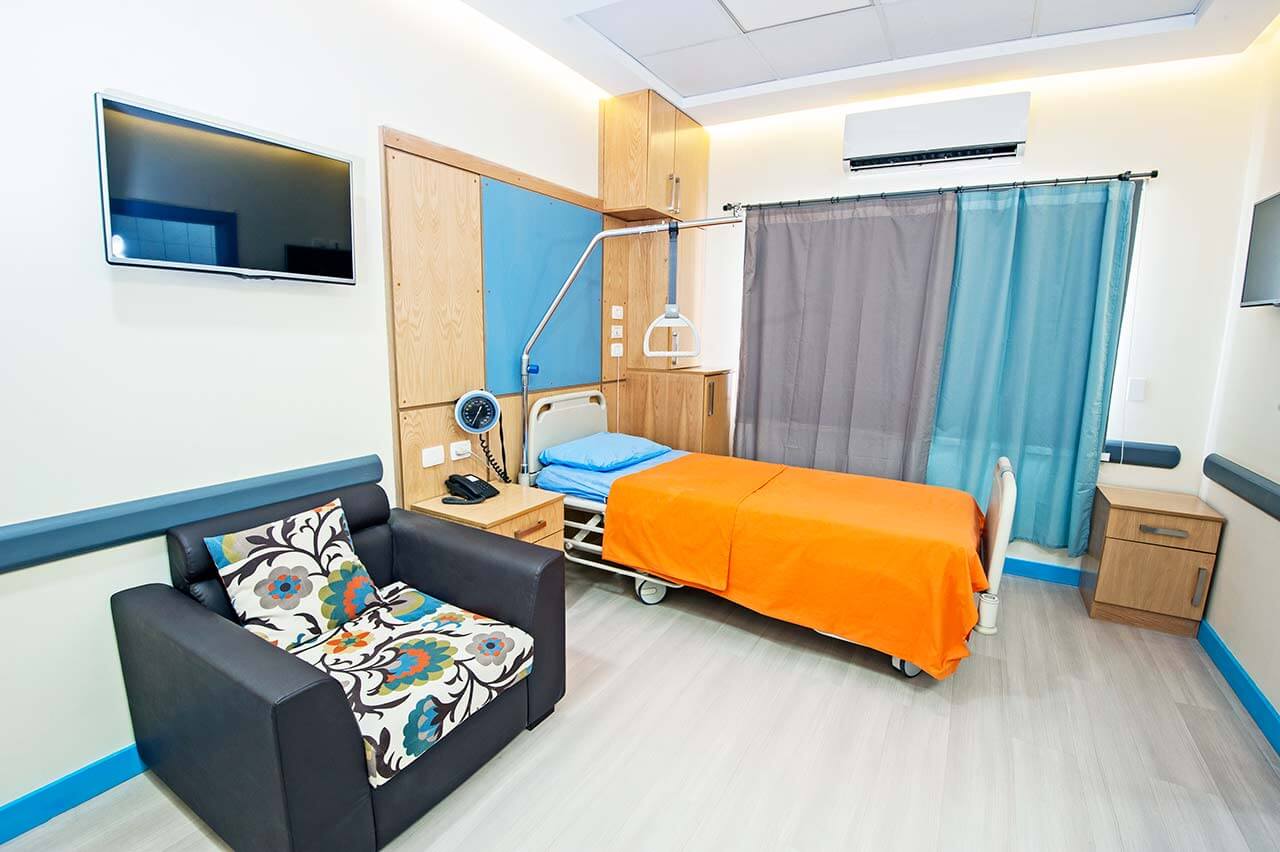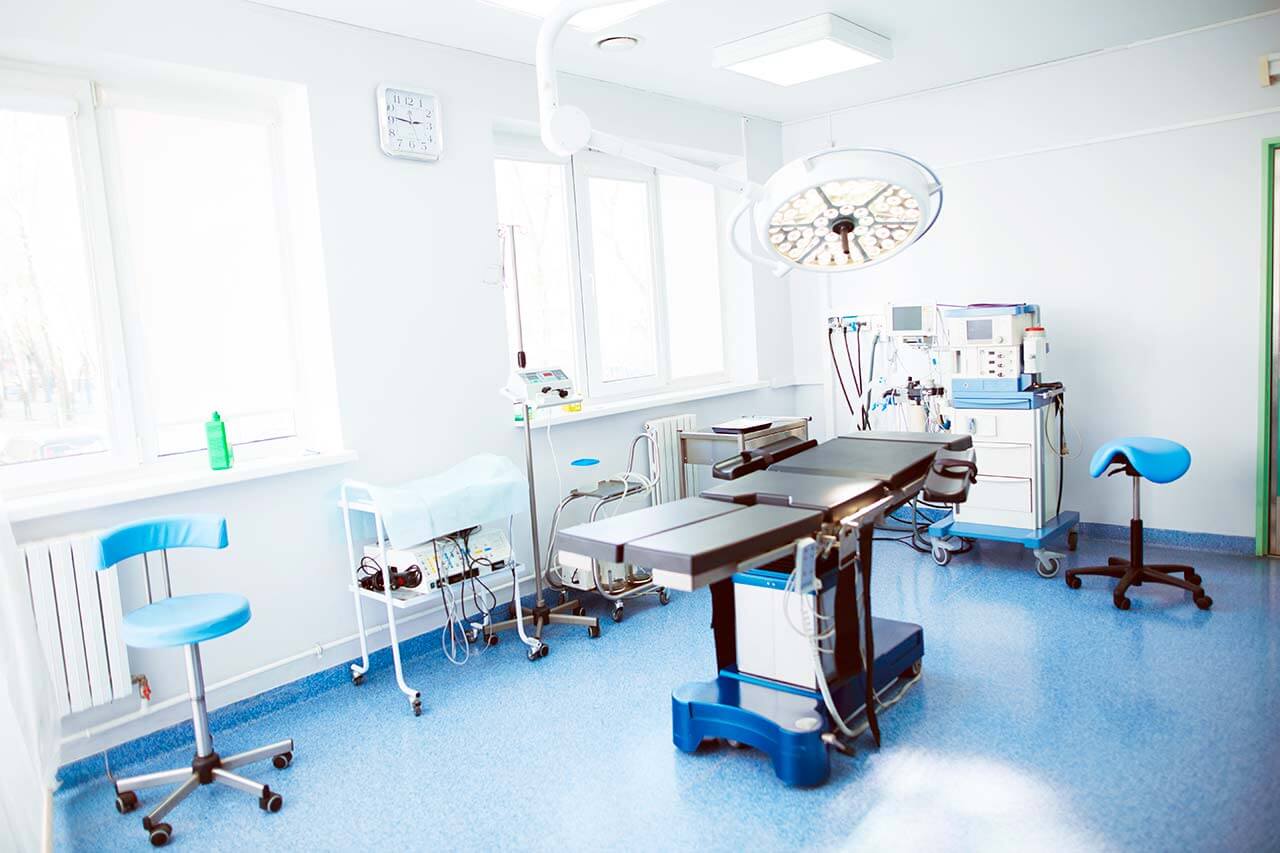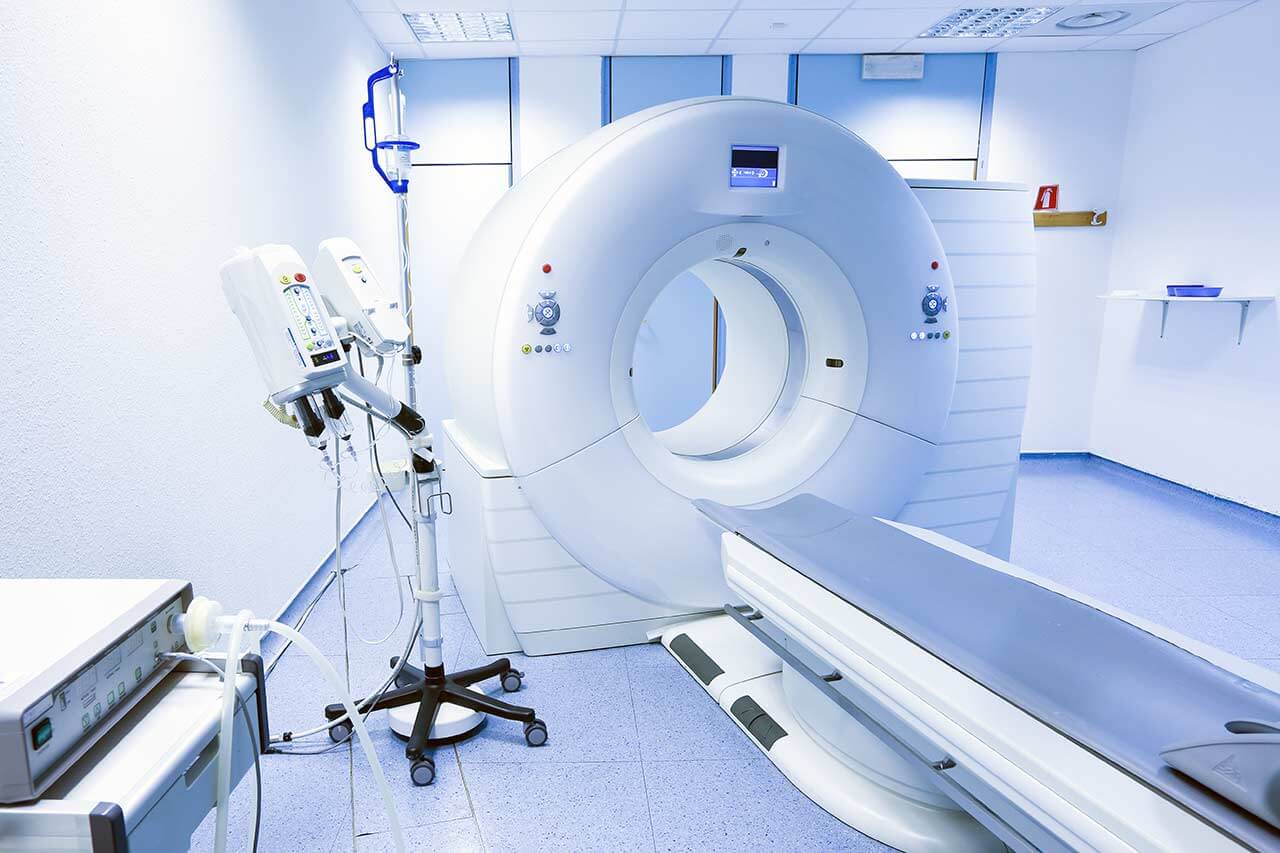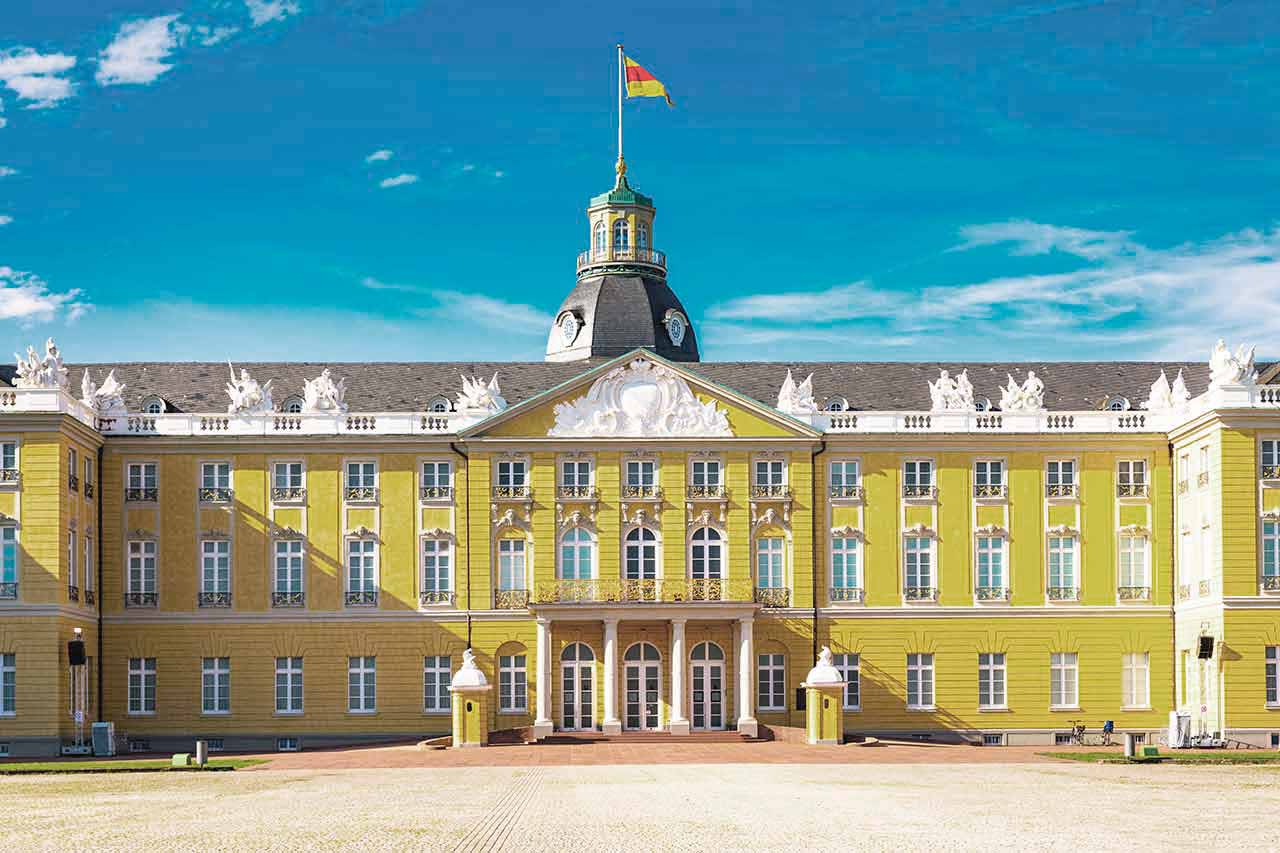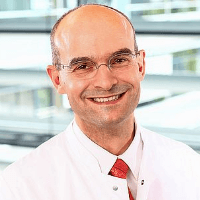
The program includes:
- Initial presentation in the clinic
- clinical history taking
- review of medical records
- physical examination
- laboratory tests:
- complete blood count
- biochemical analysis of blood
- inflammation indicators (CRP, ESR)
- indicators blood coagulation
- neurological examination
- CT/MRI scan (one region)
- spondylogram
- muscle spasm blockade
- neuropsychological tests (on indications)
- consultation of related specialists
- symptomatic specific treatment
- the cost of essential medicines and materials
- nursing services
- control examinations
- full hospital accommodation
- developing of further guidance
Required documents
- Medical records
- X-ray examination, MRI/CT scan (if available)
Service
You may also book:
 BookingHealth Price from:
BookingHealth Price from:
About the department
The Department of Neurology and Epileptology at the Municipal Hospital Karlsruhe offers all modern medicine options for patients with diseases of the central and peripheral nervous systems. The department includes a modern Neurological Intensive Care Unit and an advanced Stroke Unit for the effective treatment of patients with stroke, certified under the requirements of the German Stroke Society. The hospital has 78 beds to accommodate its patients, including 12 beds in the Intensive Care Unit with the possibility of mechanical ventilation. The department annually admits more than 3,000 inpatients. The medical facility has an excellent diagnostic base for assessing the state of the nervous system and detecting the slightest pathological changes. As for treatment, the department's neurologists use modern drug therapy regimens and other types of conservative treatment. Experienced neurosurgeons are engaged in the therapeutic process if the patient requires surgery. The Head Physician of the department is Prof. Dr. med. Georg Gahn.
The department primarily focuses on treating stroke, movement disorders (for example, Parkinson's disease), inflammatory and immunological lesions of the nervous system (for example, multiple sclerosis, myasthenia gravis, Guillain-Barré syndrome), neuromuscular and neurodegenerative diseases, and epilepsy. Of great importance is the cooperation with doctors of related medical specialties, particularly with neurosurgeons, vascular and thoracic surgeons, otorhinolaryngologists, and neuroradiologists (CT, CT-angiography, MRI, MR-angiography, angiography, neurovascular interventions, coiling, stent implantation, etc.).
The key area of the department's clinical activity is stroke treatment. To provide medical care to patients with this pathology, the department has a specialized Stroke Unit, founded in 1999. The Stroke Unit has an experienced medical team consisting of neurologists, radiologists, neurosurgeons, vascular surgeons, internists, physiotherapists and speech therapists. The main treatment for acute stroke is lysis therapy. The department's specialists perform more than 250 such procedures annually and have impressive experience in the interventional treatment of stroke. The beds in the Stroke Unit are equipped with modern monitoring systems, with the help of which doctors monitor the patient's vital signs, including blood pressure, heart rate, blood glucose levels, body temperature, etc. The department offers effective stroke treatment under current clinical protocols.
The department's neurologists also successfully cope with the treatment of neuromuscular diseases. The most common pathologies in this group include myopathies, myasthenia gravis, polyneuropathies, peripheral nerve compression syndromes, spinal muscular atrophy, and amyotrophic lateral sclerosis. The diagnostic protocol for the detection of the above-mentioned diseases includes electrophysiological tests (electromyography, electroneurography, autonomous functional diagnostics), muscle and nerve ending biopsy, assessment of the act of swallowing, genetic tests, and muscle and heart MRI. Based on the data of a comprehensive examination, an optimal regimen of drug therapy is developed. In addition, with appropriate indications, it is also possible to carry out plasmapheresis (removal of antibodies against nervous tissue from blood plasma, etc.).
The department specializes in treating inflammatory diseases of the nervous system: meningitis, encephalitis and multiple sclerosis. A diagnosis can be confirmed with modern tests, including MRI, MR spectroscopy, cerebrospinal fluid analysis and registration of evoked potentials. When fighting against inflammatory diseases of the nervous system, plasmapheresis, monoclonal antibody therapy, intrathecal administration of corticosteroids, and chemotherapeutic agents are used. Additionally, doctors prescribe physiotherapeutic procedures, ergotherapy, massage, etc.
The department's therapeutic offer is complemented by epilepsy treatment, which is one of the most common and rather dangerous diseases of the central nervous system. The main diagnostic method for suspected epilepsy is electroencephalography (for example, sleep-deprived electroencephalography and video-EEG monitoring). In most cases, it is sufficient to carry out treatment with antiepileptic drugs to prevent epileptic seizures and maintain a patient's high quality of life. Monotherapy is suitable for most patients, but a combination of several drugs may sometimes be required. At the same time, it is essential to strictly follow the attending physician's instructions, without lowering or increasing the dose of the drug, and also not to stop taking the medications. Patients with epilepsy usually have a long course of drug therapy that lasts several years.
The department's main clinical activities include:
- Diagnostics and treatment of stroke
- Lysis therapy
- Diagnostics and treatment of neuromuscular diseases: myopathies, myasthenia gravis, polyneuropathies, spinal muscular atrophy, and amyotrophic lateral sclerosis
- Drug therapy
- Plasmapheresis
- Neurological intensive care
- Diagnostics and treatment of inflammatory diseases of the nervous system: meningitis, encephalitis and multiple sclerosis
- Plasmapheresis
- Therapy with monoclonal antibodies
- Intrathecal administration of corticosteroids
- Chemotherapy agents
- Diagnostics and treatment of neurodegenerative diseases: Parkinson's disease, dementia, ataxia and tremor
- Drug therapy
- Deep brain stimulation (in collaboration with neurosurgeons)
- Diagnostics and treatment of epilepsy
- Drug therapy
- Neurological intensive care (special focus on intensive care and mechanical ventilation in patients with severe neuromuscular diseases, cerebral hemorrhage and cerebrovascular accidents, and epileptic seizures and inflammatory diseases of the nervous system)
- Systemic and intra-arterial lysis
- Mechanical recanalization ("thrombectomy")
- Therapy for intracranial hypertension (for example, craniotomy with a continuous intracranial pressure measurement, and intraventricular lysis)
- Non-invasive monitoring methods
- Invasive blood pressure and circulation monitoring, including advanced hemodynamic monitoring (PICCO)
- All types of hemodialysis, including citrate dialysis, hemofiltration or plasmapheresis (in collaboration with the Department of Nephrology)
- Other medical services
Curriculum vitae
Prof. Dr. med. Georg Gahn received his medical education at the University of Wuerzburg. As a student, he trained at Louisiana State University, Shreveport and the University of Rochester, USA. In 1994, Prof. Gahn received his Doctoral Degree at the University of Wuerzburg with a thesis titled "Mutations in the H-2 complex: an attempt to isolate mutated T lymphocytes using magnetic cell separation". From 1993 to 1995, the doctor completed his internship in the Department of Neurology at the University Hospital Wuerzburg and then received his scholarship, thanks to which, until 1996, he was engaged in the treatment of neurovascular diseases at the Massachusetts General Hospital of Harvard Medical School in Boston, USA. In 1996, Dr. Georg Gahn joined the University Hospital Carl Gustav Carus Dresden, where he worked as an Assistant Physician in the Department of Neurology until 1999 and in the Department of Psychiatry until 2000. In 2000, the Professor received his board certification in Neurology and was appointed as a Senior Physician in the Department of Neurology at the University Hospital Carl Gustav Carus Dresden. In April 2003, he completed his habilitation on the subject: "Transcranial color-coded duplex sonography in cerebrovascular diseases" at the Faculty of Medicine of the Dresden University of Technology with a simultaneous appointment to the position of PD. The doctor then completed his advanced training courses in Special Neurological Intensive Care and Clinical Geriatrics, after which he was appointed a Deputy Head of the Department of Neurology in July 2003. In 2007, he completed a three-year training for a Master of Business Administration in Healthcare Management at the Dresden International University. Since June 1, 2008, Prof. Georg Gahn has been heading the Department of Neurology and Epileptology at the Municipal Hospital Karlsruhe. On July 4, 2008, he was appointed an Extraordinary Professor at the Dresden University of Technology.
Photo of the doctor: (c) Städtische Klinikum Karlsruhe
About hospital
The Municipal Hospital Karlsruhe is a modern maximum care medical facility, which combines a long tradition and the advanced achievements of modern medicine. The hospital operates on the basis of the University of Freiburg, so scientific innovations in the field of diagnostics and treatment are continuously introduced into practice here. The hospital presents almost all areas of modern medicine, including many medical services for young patients.
A highly qualified and experienced team of more than 4,500 employees provides impeccable medical care. The medical facility has 1,571 beds for the hospitalization of its patients. The hospital admits more than 63,000 inpatients and about 186,000 outpatients annually. A large number of patients wishing to receive medical care in the hospital speak for themselves and are a confirmation of the exceptional service, as well as the effectiveness of the treatment provided.
The quality management system of the hospital's medical care is certified in accordance with the DIN EN ISO 9001 standards. Since 2016, the hospital has implemented a regular quality control in compliance with the strict standards of the Initiative Quality Medicine (IQM). In addition, almost all departments of the hospital have numerous certificates in their areas of specialization, including certificates from the German Cancer Society (DKG), the German Society for General and Visceral Surgery (DGAV), the German Cardiac Society (DGK), the German Diabetes Society (DDG), the German Society of Nephrology (DGN), the German Trauma Society (DGU), etc.
The main value of the hospital's staff is the health and satisfaction of their patients, so a respect and a humane attitude towards each patient remain priorities. The doctors and nursing staff support each patient in every possible way on their path to recovery. The specialists also strive to perform the most sparing, but at the same time the most effective and safe treatment.
Photo: (с) depositphotos
Accommodation in hospital
Patients rooms
The patients of the Municipal Hospital Karlsruhe live in cozy patient rooms with everything necessary for a comfortable stay. Standard patient room furnishing includes an automatically adjustable bed, a bedside table, a TV, and a telephone. The patient rooms have Wi-Fi. Each patient room also has an ensuite bathroom with a shower and a toilet.
The patient rooms in the pediatric departments are specially designed for children, so that young patients feel at home. Children can live in their patient room with one of their parents. There are also special playrooms designed for children.
Meals and Menus
The patients of the hospital are offered tasty and varied three meals a day: breakfast, lunch and dinner. The menu also features dietary meals. The kitchen staff will gladly accept all the individual wishes of patients.
The hospital also has a cozy cafe where one can have a tasty snack, drink tea, coffee and soft drinks.
Further details
Standard rooms include:
Religion
The hospital has two chapels that regularly host Protestant, Catholic, and Ecumenical worship services. A patient can watch the broadcast of the worship on TV channels in his own room, if desired.
Accompanying person
Your accompanying person may stay with you in your patient room or at the hotel of your choice during the inpatient program.
Hotel
You may stay at the hotel of your choice during the outpatient program. Our managers will support you for selecting the best option.
